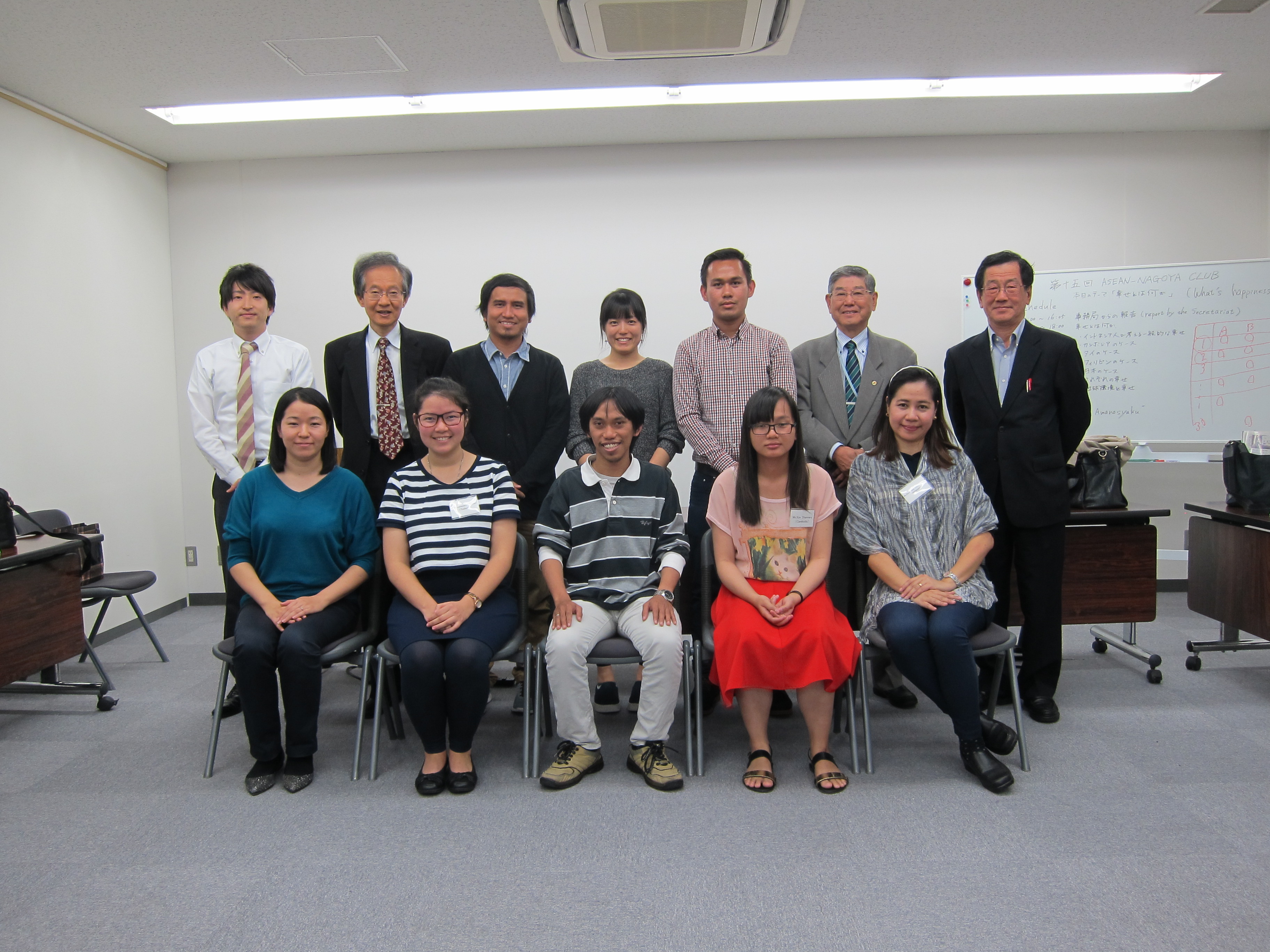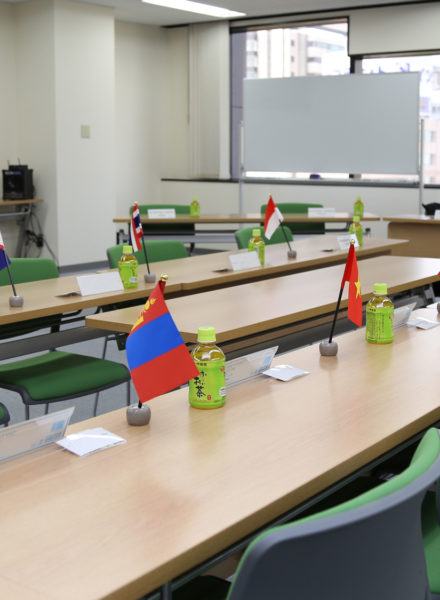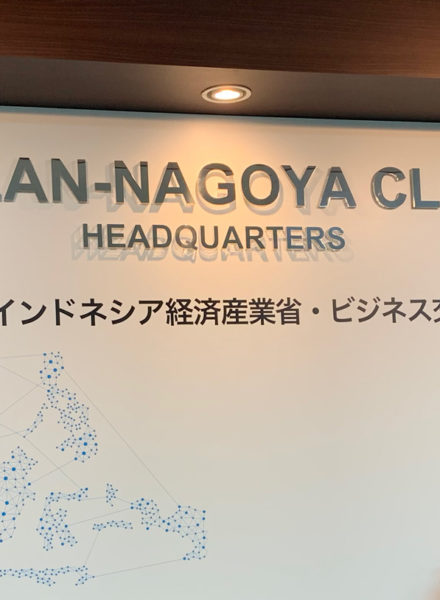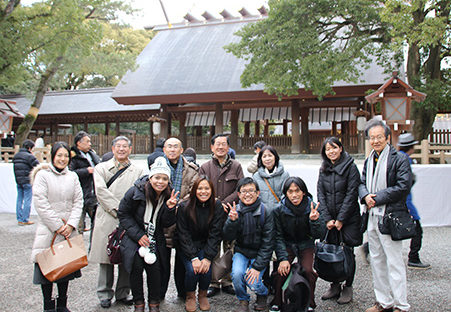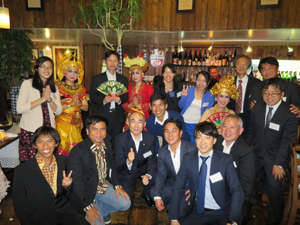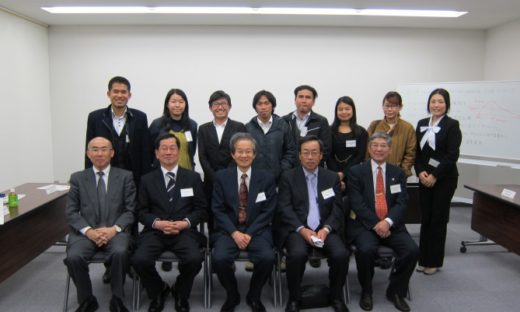第15回ミーティング報告書 2015年10月29日 (The 15th Meeting Report October 29, 2015)
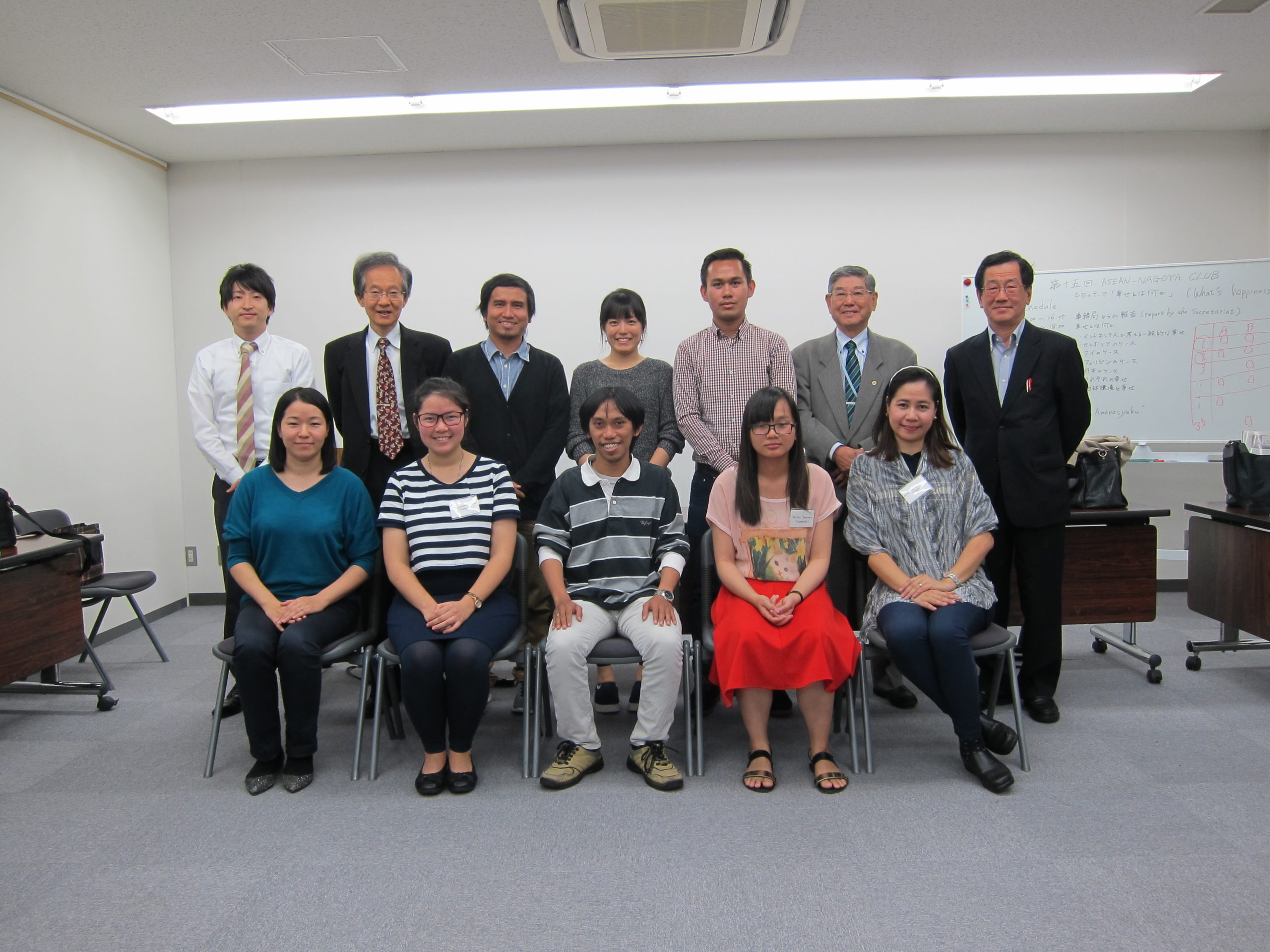
幸せとは何か
ASEAN-NAGOYA CLUBの第十五回目です。今日は日程が合わない留学生がたくさんでました。一方、本日が初めての留学生をお招きすることができました。この10月に来日し、半年の留学スケジュールの3名です。KIM Channaryさん(カンボジア)、KLISSANAVANICH Temsiriさん(タイ)、DAVID Maria Teresa Santosさん(フィリピン)です。
今日は、本質的なテーマ「幸せとは何か」です。私たちはこのテーマを実現するために、生きているようなものですが、幸せの捉え方は、人によって随分違います。また国によっても異なります。そんな難しいテーマについて、今日は、みなさん、幸せについて、どのように考えているのか、とても興味深い1日となりました。
幸せと豊さとの関係について、議論となりました。幸せになるために、お金を稼ぐ。ASEANの国々にはまだ貧しい国がたくさんあります。貧困から抜け出すことで、幸せをつかむ。先進国日本から見れば、幸せになるための条件がまだ揃っていないように見えます。しかし、議論するとそうでもないのです。カンボジア、フィリピンでは、お金を稼ぐために、都市や海外に出稼ぎに出る親は少なくありません。親にしてみれば家族を幸せにするために、出稼ぎに行きます。残された子どもたちは、お父さんとお母さんが一緒にいないことで悲しい思いをしている。一方、出稼ぎに出ている親も、遠く離れた地で、家族のことを思いながら暮らしている。幸せのために、お金を稼いでいるのに、幸せに必要な家族の絆を失っている。こういうパラドックスが、人々を苦しめています。
これは、高度成長期に田舎から東京に出稼ぎに出て行った、地方の人々の姿と重なるものがあります。豊かさが幸せの要件であるはずですが、豊かさを手にするためには、失うものがある。またその犠牲は、人の幸せを考えたとき、かなり大きなものであることがわかります。留学生の皆さんと話をしていますと、人の幸せとは、お金やものがもたらすのではなく、人間がもたらしてくれることを再確認できます。家族。友人。人間が幸せをもたらしてくれるのです。
人間が人々に幸せをもたらしてくれる。ASEANの人々は、こうした感覚を日本人より、強く持っているように見受けられます。いろいろな機会を捉えて、人々が集う。彼らはパーティと呼びます。それは結婚式、同窓会、誕生会、など様々です。テーマは何でもよいようです。人々が集まり、そこに食事を用意する。これでパーティの形式が整う。そこに行って、人々とつながる。これが幸せの原点です。見知らぬ者同士が、同じテーブルを囲んで、親しくなる。ASEANの人々は、パーティを中心にして1年のスケジュールが成り立っているようです。こうしたパーティを大事にする文化は、社会の仕組みにも反映しています。フィリピンでは、パーティローンという借入形態があるそうです。それほど、人のつながりに価値を置く社会であることがわかります。
こうした話しを理解しますと、ASEAN各地域に進出する日系企業の駐在員の行動が気になります。ASEANの人々がパーティを企画しても、日本人はなかなか参加してくれないといいます。欧米人は喜んで参加してくれる。どうして、日本人は参加しないのだろうかと怪訝に思う。パーティをとても大事にするASEAN文化圏で、私たち日本人の行動は、課題がありそうです。私たち日本人は仕事の関係で出会った人々と、個人的な出会いを分ける傾向があり、仕事の関係を休日にまで持ち込みたくないという心理のようです。ASEANとの関係がより緊密になっていくことを考えますと、より掘り下げた人間関係が必要かもしれません。
What is happiness?
This is the 15th Meeting of ASEAN-NAGOYA CLUB. There were many international students who could not participate today. On the other hand, today I was able to invite the first year of the international students. They came to Japan this October , they are KIM Channary (Cambodia), KLISSANAVANICH Temsiri (Thailand), and DAVID Maria Teresa Santos (Philippines).
Today’s theme is “What is happiness?” We are like living to achieve this theme, but the perception of happiness varies considerably from person to person. It also depends on the country. We discussed about the relationship between happiness and money. Making money is the only way to be happy. There are still many poor countries in ASEAN countries. Happiness is getting out of poverty. From the perspective of Japan, a developed country, it seems that the concept for happiness has not been met yet. In Cambodia and the Philippines, many parents go to work in cities or abroad to make money. For parents, they go to work to make their family happy. The children, who are left, are sad because their father and mother are not together. On the other hand, parents who are migrants also live in remote areas, thinking about their families. You are making money for happiness, but you are losing the family ties needed for happiness. This paradox is afflicting people.
This overlaps with the appearance of local people who went to work from the countryside to Tokyo during the period of high economic miracle. Money should be a required for happiness, but there is something to lose in order to obtain it. We also find that the sacrifice is quite large when considering the happiness of people. Talking to international students, we can reaffirm that human happiness comes not from money or things, but from family and friend.
People in ASEAN seem to have this feeling stronger than the Japanese people. ASEAN People gather at various opportunities like parties. It can be a wedding, an alumni association, a birthday party, and so on. People get together, connect to each other, and prepare for the meals there. This is the origin of happiness. Strangers get close to each other around the same table. People in ASEAN seem to have a one-year schedule focused on parties. The culture of valuing these parties is also reflected in the structure of society. In the Philippines, there is a form of borrowing called a party loan. You can see that it is a society that values people’s connections.
If you understand these stories, you will be worried about the behavior of expatriates of Japanese companies expanding into each region of ASEAN. Even if the people of ASEAN organize a party, it is said that Japanese people do not easily participate. Westerners are happy to participate. I wonder why Japanese people don’t participate. In the ASEAN cultural area where parties are very important, the actions of us Japanese are likely to be challenging. Japanese tend to separate personal encounters with people we meet in a business relationship, and it seems that we do not want to bring the work relationship to holidays. Considering that the relationship with ASEAN will become closer, it may be necessary to have a deeper relationship.
Participants:
Mr. Nishi, Mr. Suzuki, Mr. Matsuhisa (coordinator), Mr. Tanaka (staff)
参加者:
<日本人メンバー>
西氏、鈴木氏、松久氏(コーディネーター)、田中氏(スタッフ)
<留学生メンバー>荻巣先生(コメンテーター)、島津先生(コーディネーター)、Mr.Indra Kesuma Nasution 、Mr.Mardiansyah Mardis、Ms.Kim Channary、Ms.David Maria Teresa Santos、Ms.Klissanavanich Temsiri, Mr. Chheourn KuyEng
